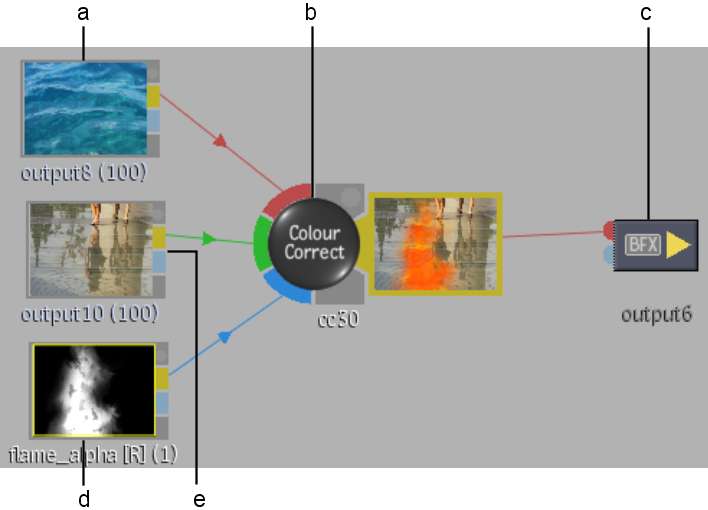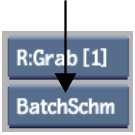Use Batch to assemble a series of tasks using nodes. Each node represents a specific Smoke function. You connect clips with nodes and use the result of one node as the source for the next node. As you assemble this arrangement in the Batch schematic, you are building a process tree that processes as many output clips as you want. Intermediate clips can be processed as well.
A process tree begins with a clip, contains at least one node, and ends with a BFX Output node. The following example shows a simple process tree that performs a colour correction using a front, back, and matte clip.



(a) Front clip (b) Colour Correct node (c) BFX Output node (d) Matte clip (e) Back clip
The Batch Module is available only in Smoke 2K.
Workflow: To build a process tree:



Before you can process, a process tree must end with a BFX Output node. Batch uses these nodes to process the result of the process tree to the corresponding timeline segment. See BFX Output Node, and Outputting Batch Results.
The final clip is stored on the EditDesk. See Previewing Results and Outputting Batch Results.